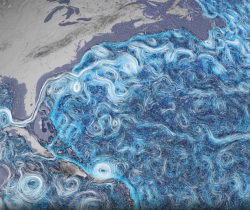Climate science is a complex field encompassing disciplines such as mathematics, atmospheric science, oceanography, and physics. It also intersects with other areas like geology, chemistry, biology, soil science, data analysis, and hydrology.
For decision-makers, encountering unfamiliar terminology can feel overwhelming. Briefing notes are invaluable tools that simplify complex climate science concepts by translating scientific research into plain English. They offer concise, accessible explanations of scientific findings.
In collaboration with researchers and decision-makers, the ARC Centre of Excellence for Climate Extremes produced 51 briefing notes on topics ranging from urban climate to the fundamentals of climate models during its tenure. These briefing notes were widely distributed and recognised by government, industry, and media, setting a benchmark for others to follow.
Below is the complete list of briefing notes published by the Centre.






